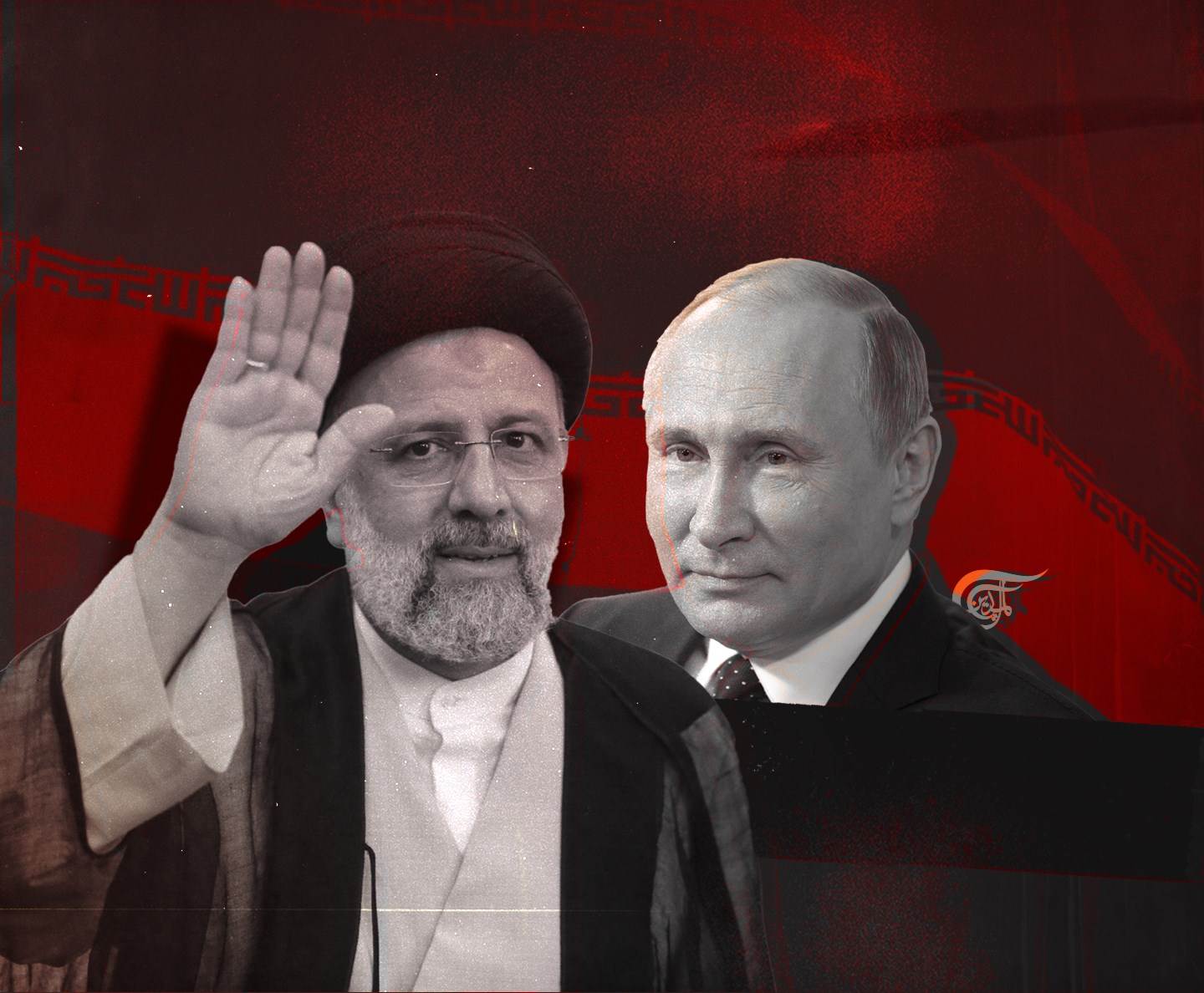Iran-Russia summit promises strategic cooperation
The Russian-Iranian summit that took place today in Moscow, and Iranian President Ebrahim Raisi asserts that in light of the policy of the states and the West, relations between the two countries must strengthen.
-

Iran and Russia praise their cooperation in Syria, and deem it as a base for their relations.
The Russian-Iranian summit took place in Moscow today, Wednesday, where Russian President Vladimir Putin received his Iranian counterpart, Ebrahim Raisi.
Raisi, at the beginning of the meeting, made it clear that there will be no limits to "expanding and developing relations with friendly Russia," noting that "relations with Russia will develop into strategic ones."
He said, "In light of the policy of the United States and the West, our relations must be stronger," adding, "We have been confronting the United States with Russia for 40 years."
The Iranian president hopes that Iran's efforts to lift the sanctions off Iran will succeed.
"We have presented to our Russian friends a draft of our vision on the strategic agreement between both countries," he said, explaining that Iran has documents on strategic cooperation that can determine the horizon of this cooperation over a 20-year period."
Raisi said that trade and economic relations at the present time are not satisfactory and that Iran and Russia are making efforts so that cooperation in multiple fields would improve. He expressed his hope to "sign several agreements during our visit," which will improve cooperation, as Iran seeks to raise the level of diplomatic cooperation with its neighbors.
Raisi and Putin praised bilateral cooperation in Syria; Raisi contended that such a good example should spill into other files on the table. He said, "We have a very good experience of cooperation with Russia in Syria, and this is cooperation in the fight against terrorism in the region, in the Syrian Arab Republic. Raisi added "Such a very good experience can create the preconditions for us to apply this experience in many other areas."
Finally and on his part, Raisi conveyed Iranian leader Ali Khamenei's greetins to Putin, saying that the leader extends his best greetings to him, and he urges strengthening relations with you.
Putin: Moscow and Tehran's support was a decisive factor that helped Syria overcome threats
For his part, Russian President Vladimir Putin thanked his Iranian counterpart, Ebrahim Raisi, for accepting his visit to Moscow despite the pandemic, given the importance of the current stage in international relations.
Putin asked Raisi to convey his best greetings to Supreme Leader Ayatollah Ali Khamenei. "I am in constant contact with you [Iran] to discuss international issues," Putin added.
Putin noted that "the support of Moscow and Tehran has become a decisive factor that helped Syria overcome terrorist threats on its territory," saying, "Our efforts have greatly helped the Syrian government to overcome threats associated with international terrorism."
The Russian President expressed his desire to be informed of the positions of his Iranian counterpart on the latest developments in Afghanistan. He stated about the issue: "Now, of course, both you and us are concerned about the situation that is developing in Afghanistan. I would like to discuss all these issues with you, to know your position on this problem."
Regarding Iran's nuclear program, Putin said: "Of course, it is very important for me to know your position on the JCPOA," He explained that trade between the two countries increased by more than 38% last year, despite the spread of the Coronavirus pandemic.
Raisi's morning statements
This morning, Iranian President Ebrahim Raisi arrived in Moscow on an official visit at the invitation of his Russian counterpart Vladimir Putin.
Iranian President Ebrahim Raisi said before his departure from Tehran that his current visit to Moscow could be a "Given the political, economic and trade relations between the two countries in various fields, the visit can be a turning point for all our relations with Russia."
He added that Iran and Russia are considered two important and powerful countries, and the talks between the two countries will have an impact on ensuring the security of the region and strengthening regional economic and trade relations.

 4 Min Read
4 Min Read










